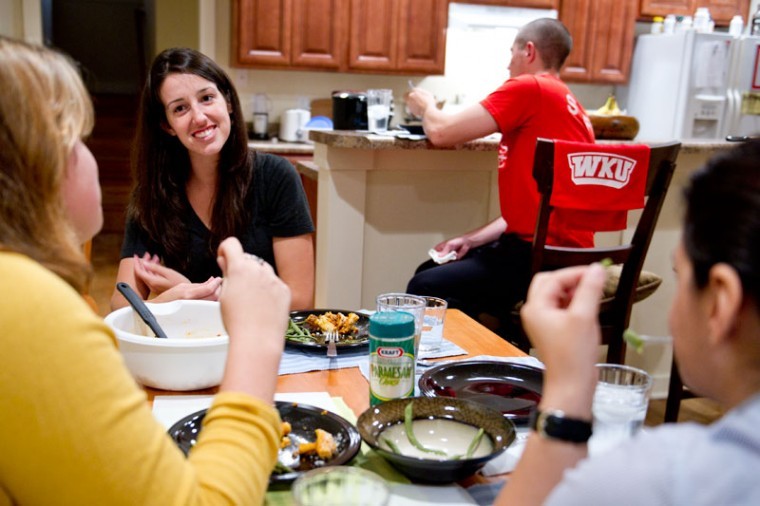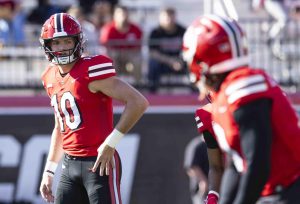Hill House creates second chance for neighborhood
September 9, 2011
When WKU graduate Bob Basham’s mother moved to the East Eleventh Avenue neighborhood, he was shocked to find out the level of crime in the area.
He learned that police had been called to one particular house in the neighborhood nearly 100 times in a span of five years.
Crime reports had been filed for domestic violence, drug trafficking, prostitution and child abuse – “pretty much anything you can think of,” Basham said.
After Basham and his wife watched an early morning drug raid, they approached the owner to find out how they could help.
The couple, both WKU graduates, not only bought the house but began a four year renovation project.
Basham said they wanted to somehow change the “feel,” not just the looks.
“We did a lot of brainstorming about ways the property could be utilized to rebuild human connections in the neighborhood,” he said.
In fall 2009, the couple teamed up with the WKU ALIVE Center and the Institute for Citizenship and Social Responsibility (ICSR) to create the Hill House.
Both institutions were thrilled that Basham decided to use the house for a good cause.
“He’d had it with the crime going on in the area,” said Nadia De Leon, Community Engagement Coordinator for the WKU ALIVE Center for Community Partnerships. “This was a community member approaching us. It was very special.”
The Hill House is modeled after the Hull House in Chicago, which opened its doors to various groups of immigrants in the late 1880s.
WKU’s version, located at 741 East Eleventh Ave., provides four graduate students with experiential learning opportunities to conduct applied research in their discipline.
The students work 20 hours for the ALIVE Center, pay rent at the house, receive a stipend and waived tuition.
This semester the Hill House welcomed four new graduate student: Elcin Celik of Turkey, Amelia Harshfield of Wichita, Kansas, Jacqulynn Skaggs of Louisville and John Roberts of Scottsville.
Roberts said he wants to learn what effect colleges have on the communities surrounding them.
“Our community should be at an advantage since they have an intellectual environment right here,” he said.
Roberts studied psychology at Georgetown College and is now pursuing a master’s degree in counseling and student affairs.
While living in the house, students collaborate to plan monthly events aimed to build and improve the quality of life in the community.
“The students are getting meaningful, hands on experience and at the same time the community is directly impacted,” De Leon said.
Basham feels that his family benefits from the Hill House as well.
“It enables my wife and I an avenue to nurture the town we chose to make our home as WKU grads,” he said. “We are proud to be involved with bright, creative students eager to make a positive impact in their community.”
This fall, the students have planned a block party in September, a Halloween movie night with trick-or-treating for children and a Thanksgiving potluck.
“I like that the program matches you with the community and you get to know the people,” said Harshfield, who received a business degree from Baker University and is seeking a master’s degree in economics.
She is studying the development of Kentucky counties in respect to income.
“I want to know why Kentucky is one of the poorest states in the country and why it continues to be poor,” she said.
At the end of the academic year, each student is required to do a project, which may serve as a thesis for their major and benefit the community as well.
The goal is to tie all of their coursework to the Hill House.
“We hope our experience inspires others to consider creative ways they can improve their communities with the resources and natural talents they have available,” Basham said.
Throughout the year, the students will announce and document their events on a group blog, www.wkuhillhouse.posterous.com.
Everyone is encouraged to follow the blog and attend the free events.













